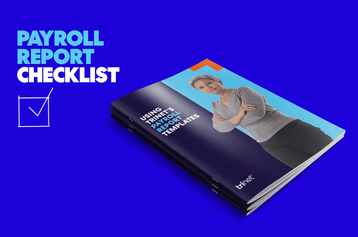Can Employers Require Independent Contractors to Use Direct Deposit?

Table of contents
- 1.Independent contractors are not the same as employees
- 2.You can set payment terms in a contractor agreement
- 3.Make sure the terms are clear and agreed upon
- 4.Contractors can be flexible, but don’t treat them like employees
- 5.Check state laws and seek legal advice when unsure
- 6.Final thoughts
Paying contractors by direct deposit saves time and reduces paperwork. The payment goes directly into the contractor’s bank account, often on the same day. It avoids delays from mailing checks or dealing with lost payments. Many companies rely on this method to keep their payment process fast and accurate. Because of these benefits, business owners often ask if they can require independent contractors to accept direct deposit instead of a paper check. This question matters because the rules for paying contractors are different from the rules for paying employees. Independent contractors are not protected by the same wage payment laws, but that does not mean businesses can do anything they want. The payment method must be part of the agreement, and both sides must accept the terms. In this article, we explain what the law allows, what you should include in your contract, and what to avoid to stay compliant.
Independent contractors are not the same as employees
Contractors work under a different legal relationship than employees. They set their own schedules, control how they perform their work, and pay their own taxes. Because of this, employers must avoid treating contractors like employees. That includes how payment terms are handled. If you're looking for guidance on employees instead, see our article on whether you can require employees to use direct deposit. The IRS defines independent contractors based on control and relationship, which helps determine whether a worker is truly self-employed or should be classified as an employee. Misclassifying a contractor as an employee—even by mistake—can lead to tax issues, penalties, or back payments. Keeping clear boundaries in payment and work arrangements helps prevent these problems.
You can set payment terms in a contractor agreement
Businesses can include direct deposit as a required payment method in a written contractor agreement. This is legal in most situations. Since the contractor is not an employee, the Fair Labor Standards Act (FLSA) and state wage payment laws usually do not apply. However, both sides must agree to the terms. If a contractor does not accept the payment method, they can negotiate or refuse the contract. Nolo offers guidance on how to pay independent contractors legally and efficiently. If you're hiring a contractor for the first time, review the required forms and best practices for onboarding independent contractors to make sure you're starting on solid ground.
Make sure the terms are clear and agreed upon
The contractor agreement should list how and when payments will be made. If direct deposit is required, say so in writing. Include what information the contractor needs to provide, such as bank account details. Both parties should sign the agreement before any work begins. This protects the business and the contractor and helps avoid disputes. If you’re building a repeatable process, consider using a contractor policy checklist to help guide your agreements and expectations.
Contractors can be flexible, but don’t treat them like employees
Even if a contractor agrees to use direct deposit, employers should avoid making it feel mandatory in the same way it would be for an employee. For example, you should not restrict which bank the contractor uses or charge fees related to the payment method. Doing so can create legal risk and suggest misclassification. Misclassification can lead to serious legal consequences—see how the U.S. Department of Labor addresses it here. If you're unsure whether your worker should be classified as a contractor or a part-time W-2 employee, review the key differences between contractors and part-time employees to help you stay compliant. The more control a business exerts over a contractor, the more likely the relationship could be seen as employment. Payment terms are just one area where staying hands-off helps you stay compliant.
Check state laws and seek legal advice when unsure
While most states allow businesses to set payment methods for contractors, there may be exceptions or specific rules depending on your location. Some states regulate how electronic payments are handled, especially if fees are involved. If you’re unsure, it’s best to check with a legal or HR advisor before finalizing contractor agreements. Reviewing your contractor templates on a regular basis is also a smart habit. Use our state-by-state payroll tax and registration guide to stay informed about required accounts and documentation where you do business.
Final thoughts
Yes, in most cases, you can require an independent contractor to accept payment by direct deposit. But the requirement must be written clearly in the contractor agreement and agreed upon by both sides. Keep the relationship professional and flexible, and always confirm that your practices follow state and federal law. Treating contractors fairly and legally benefits both your business and the people you hire. It also helps build long-term, low-risk working relationships.

Lauren Perales
Table of contents
- 1.Independent contractors are not the same as employees
- 2.You can set payment terms in a contractor agreement
- 3.Make sure the terms are clear and agreed upon
- 4.Contractors can be flexible, but don’t treat them like employees
- 5.Check state laws and seek legal advice when unsure
- 6.Final thoughts






